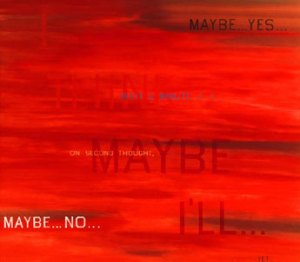
Sorry, I know it’s not my day, but I wanted to share this article from the WSJ.

Sorry, I know it’s not my day, but I wanted to share this article from the WSJ.
Today I begin a four day weekend as part of the Tate festival and as today is also my blogging day you are also globally internetly part of it. The day begins now even though I am still in bed, wearing glasses, extinct cup of tea beside me and the computer on my lap… here goes…… answers please, for each answer I will send you a virtual nomad (aka peg doll beautifully dressed in contemporary clothing made from found materials, because we are here and now talking about contemporary nomads, read below if you don’t know what Im talking about
Nomadic endings
Home became home at a certain moment, which I never recognised at the time. In that moment my home replaced the home I left behind when I was 18. That day, years later, what changed in the house or garden, or within my mind? Which new plant turned my home into my mother’s garden?
In the garden the hand that was mine was always visible, but one day it had my mother’s hand in it as well. (Maybe it was the daphne, that keeper of perfumed memories, that did it) not my fist daphne , but the first that flourished like my mother’s. Was ikt when I knew it was going to flourish that I knew I was also ‘at home’?
My childhood was criss crossed with nature wanderings, alone in it, a private world. It is nature and dirt-stained hands that , years later, take me back there. Where I can till my own earth, there I have a chance of recovering that sensation of being ‘at home’.
For others it is people: immediate family or a circle of loving friends that make them feel at home. In a city that is largely comprised of a mobile population, some long-term-temporary, some short-term-temporary, but few who live and die in the same place, much less with the same community, what constitutes a home?
In times gone by the name for those who moved to survive, in pursuit of pastures new, were called nomads. Groups of Gypsies ad Irish Travellers have continued a lifestyle of moving on in pursuit of income or a need to change location. These groups had a network to travel with or meet up with. Today many of us who live in cities move on also, but is there a network to support the the person in replacement of home? Today life is characterised in the west by a nuclear family, the smallest possible group outside of solitary. Under these circumstances how easy is it to be ‘at home’? What is a home, who is a nomad?
The Devil. Wether or not you come down on any side of the existential argument about this wiley character, this archetype is alive and well in many areas of our culture (I speak of America) and the world. This figure has evolved over thousands of years to embody every negative impulse we might encounter. I have a personal involvement with this archetype being from an ultrafundamental pentecostal family steered by a patriarchal preacher of 60 years. I’ve now come to think that it is sometimes necessary to have this figure on which we can blame our weaknesses, etc. The power we sometimes transfer to a mythological being that doesn’t exist in reality is quite incredible. Cloven hooves, horns and fangs are different but human enough to act as a visual focus that crosses cultures and times to play a role in our spiritual lives. Does the Devil factor into your life at all? Is there a character that fits a devil-like role but doesn’t traffic in the judeo-Christian or otherwise western iconography, and how is he/she represented? Are there correlations that should be part of the Devil discussion? You tell me